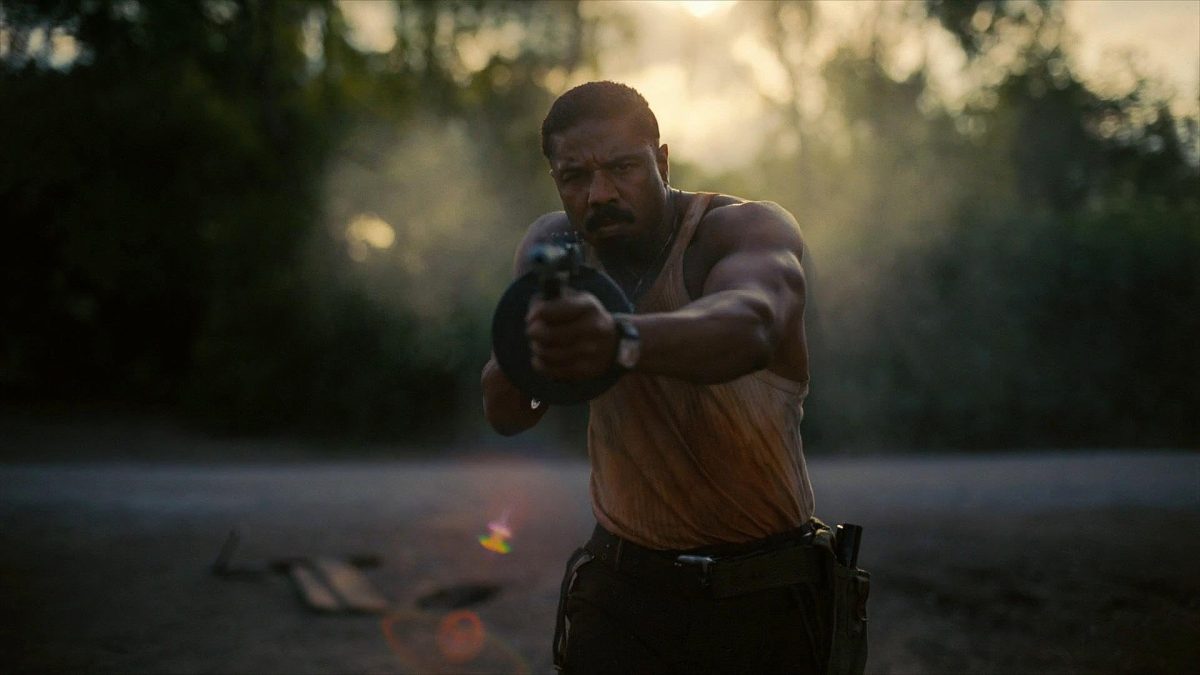Rating: 6/10
Over a year ago a question spread like wildfire across the internet. People were wondering how much time men spent thinking about the Roman Empire. Francis Ford Coppola seems to be one of these men and “Megalopolis” is his emphatic yes to the question.
The film takes place in an alternate present-day city called “New Rome.” We follow Cesar Catilina (Adam Driver), an architect who wants to build “Megalopolis,” a new city, and his rivalry with the city’s current mayor, Mayor Franklyn Cicero (Giancarlo Esposito).
While the plot might boil down to this short synopsis, the experience of “Megalopolis” cannot simply be put into words.
Get The Daily Illini in your inbox!
The visuals of the film are as inconsistent as a McDonald’s ice cream machine. At one point you are watching a grandiose chariot ride in a modern-day interpretation of the Colosseum, and next, you are staring at a scene that looks straight out of a Tubi movie.
For a reported $120 million film, there is an almost cheap quality to it. This is not to say the movie looks bad by any means, but it does make you wonder where all of the money went.
The dialogue of the film is very stylized, but to what end? Style over substance is a debate that has been waged since the Roman Empire, and Coppola seems to struggle with which to choose.
The film is filled with themes you are beaten over the head with. It tells the audience that Utopia is when everyone’s voice is heard and when debate of ideas can happen freely. This is an extremely idealistic view of the world, but even so, Coppola ignores this very idea in the film.
“Megalopolis” is filled with far-reaching overly ambitious ideas, many of which are dropped before they are even fully introduced.
Cesar’s time-manipulating abilities are the perfect example of this inconsistency. Featured throughout the film, the abilities have no real effect other than acting as cool special effects.
Grace VanderWaal plays a 23-year-old woman pretending to be a 16-year-old girl who is wrapped up in a scandal with Cesar. When the scandal first occurs, it feels like a major point in the film but is washed away only minutes later.
Nathalie Emmanuel, who plays Julia Cicero, the mayor’s daughter and Catilina’s love interest, is probably the most normal of all the characters. This would hopefully ground the film somewhat, but in reality, it weighs it down.
Julia’s scenes often drag more than the other characters, and the fault lies with Coppola. For many of the characters in this movie, he seems to struggle to know why they are there. It often feels like watching characters from entirely different movies interact with one another.
Aubrey Plaza’s character, Wow Platinum, encapsulates this problem exactly. Plaza plays the character with such energy and humor that she often seems like the only person who understands the chaos that she’s in.
Without question, the film is a mess, but like a car crash, it is almost impossible to look away from. For as much criticism as the film may receive, the experience of seeing the film for the first time is quite like anything else.
Whether it’s Cesar’s rendition of “To be or not to be,” a child hitman, a Shia LaBeouf lead revolution, or any scene with Platinum, the sheer spectacle alone is well worth the cost of admission.
Something that must be mentioned regarding the production of this film is how Coppola treated the extras during the filming of one sequence.
Back in August, Lauren Pagone, an extra for the film, came out in an interview with Variety in regards to a leaked video from the set of “Megalopolis” that shows Coppola kissing several female extras.
“I was in shock,” Pagone said. “I didn’t expect him to kiss and hug me like that. I was caught off guard. And I can tell you he came around a couple times.”
The same article also reported that Coppola would perform these actions during real takes, causing any ongoing shot to be ruined.
“Sorry, if I come up to you and kiss you. Just know it’s solely for my pleasure,” Coppola said about his actions according to the crew member that shot the video.
Having to sit through the movie knowing that Coppola treated his actors like this leaves a bitter taste in your mouth, especially if you interpret the film as Coppola’s self-insert as a revolutionary filmmaker through Cesar’s character.
Regardless of any director’s past films, there’s no excuse for situations such as this to occur.
The casting of LaBeouf was also a questionable decision by Coppola. LaBeouf, who in recent years has had multiple abuse allegations, plays a critical role throughout the film.
LaBeouf’s performance was well done, with him performing some over-the-top lines that fit the tone of the film — but similar to Coppola’s actions, it leads to an awkward feeling of having to disconnect the artist with their art.
“Megalopolis” is certainly a whirlwind, and whether or not Coppola intended to perplex the audience rather than tell a coherent story, there’s no doubt that a film as chaotic as this is engaging.
The film, and Coppola as a whole, feel similar to a once-great power hitter in baseball. He’s in his last season and though his bat doesn’t have nearly as much pop in it, he keeps on swinging.









